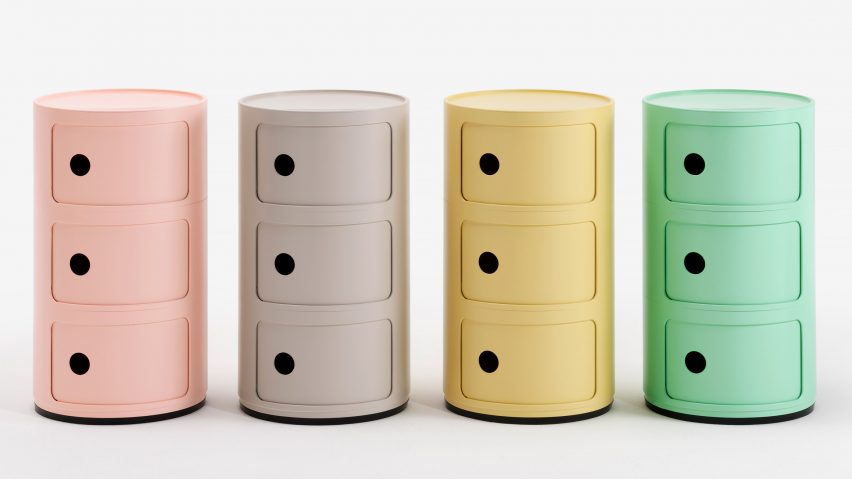
Kartell creates bioplastic version of its iconic Componibili storage unit
Italian furniture brand Kartell has released a "fully sustainable" version of its bestselling Componibili storage unit made from bioplastic.
The brand, which specialises in plastic furniture and homewares, teamed up with Italian bioplastic producer Bio-on to create the product.
The updated unit is manufactured from a new bioplastic made from agricultural waste and named CL after Kartell president Claudio Luti.
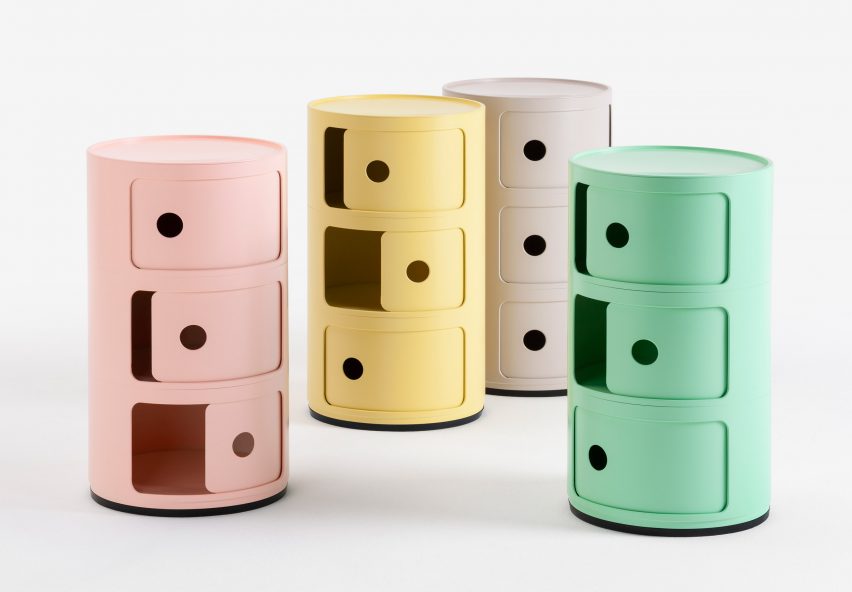
"Research is our mission and we continue to experiment in order to combine innovation and design," said Luti.
"We have worked with Bio-on to be able to offer our public a high-quality bioplastic product, and we have chosen to do it on one of our historic products [which is] among the most recognised in the world," he continued.
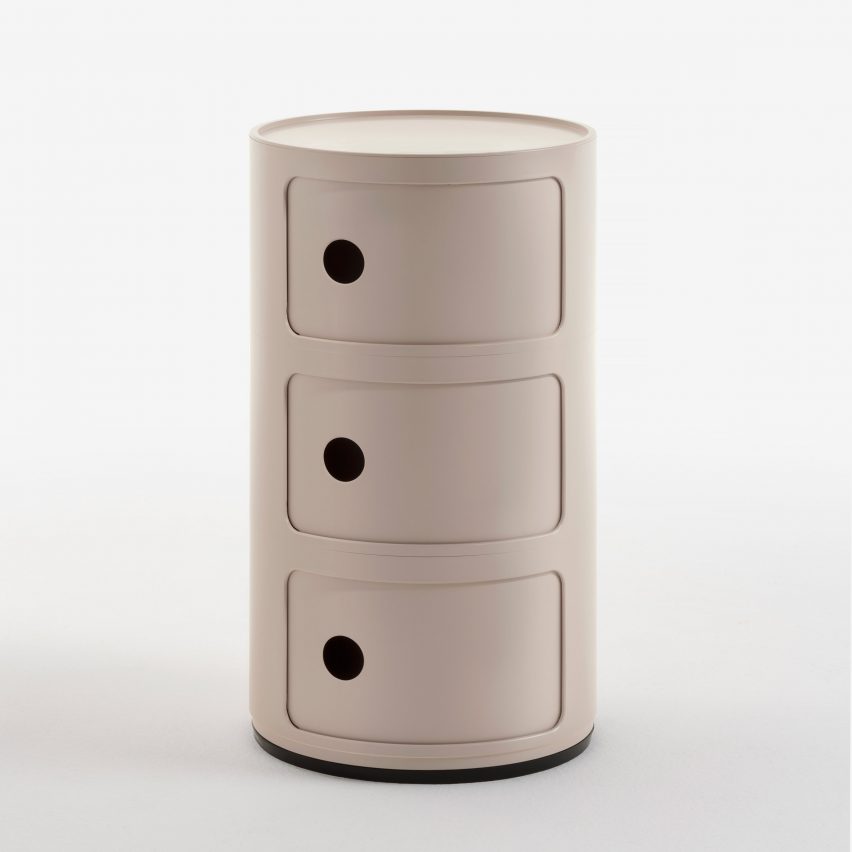
The Componibili storage unit, which is cylindrical in form with sliding panels, was first created by Italian designer and Kartell co-founder Anna Castelli Ferrieri in the 1960s.
Praised at the time for its innovative use of injection-moulded ABS plastic, the piece soon became an icon of modular furniture design, and helped Kartell introduce plastic into the domestic furniture market.
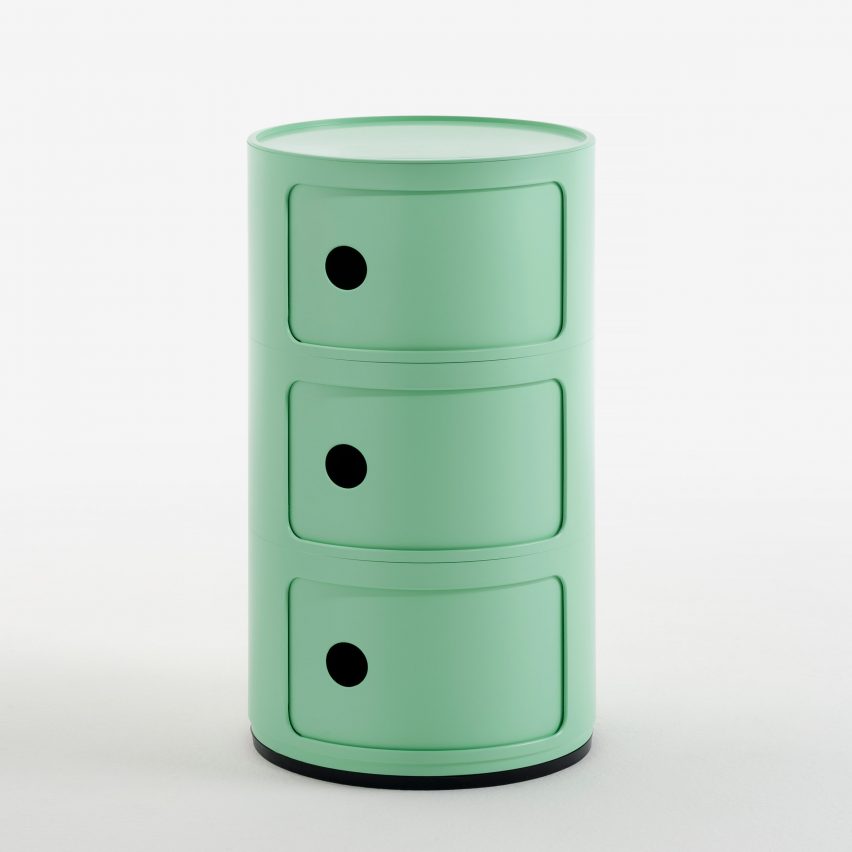
The bioplastic used in the new version is produced when farm waste is fermented by bacteria to produce natural polyesters called linear polyhydroxyalkanoates (PHA).
This is the first time Kartell has put a bioplastic product on sale, although in 2018 it presented Bio Chair – a prototype by designer Antonio Citterio, which was made from a similar material called Biodura made from a vegetable polymer.
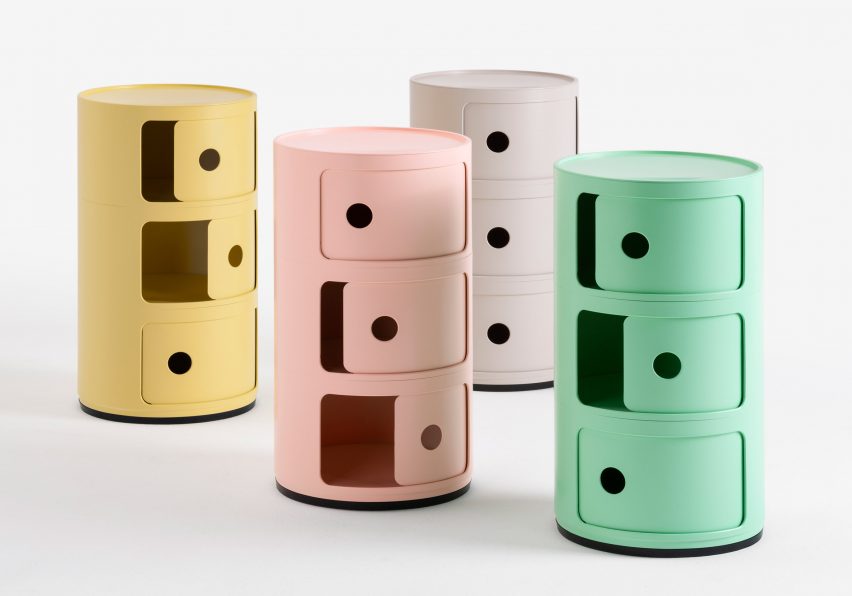
In 2017 Kartell's parent company Felofin bought a two per cent stake in Bio-on in order to gain a leadership position in this new sector of organic electronics.
"Ever-increasingly, the market demands that we consider the environment in all that we do," said the Italian design company.
"Sustainability has always been a part of Kartell's approach, with a product that is completely recyclable and Greenguard certified for its low emissions," it said.
"Our research journey is now continuing into the biological world, presenting, for the first time, a ready to buy product in this material."
The company claims the material is resistant to breakdown by water and heat during use, and says it is 100 per cent biodegradable on land, in rivers and in seas.
The sustainable version of the modular storage unit is available in four colours: green, pink, taupe and yellow.
While the company is yet to announce the date when the products will be hitting the shelves, the Componibili Bio line is a hint towards more bio-focused projects to come.
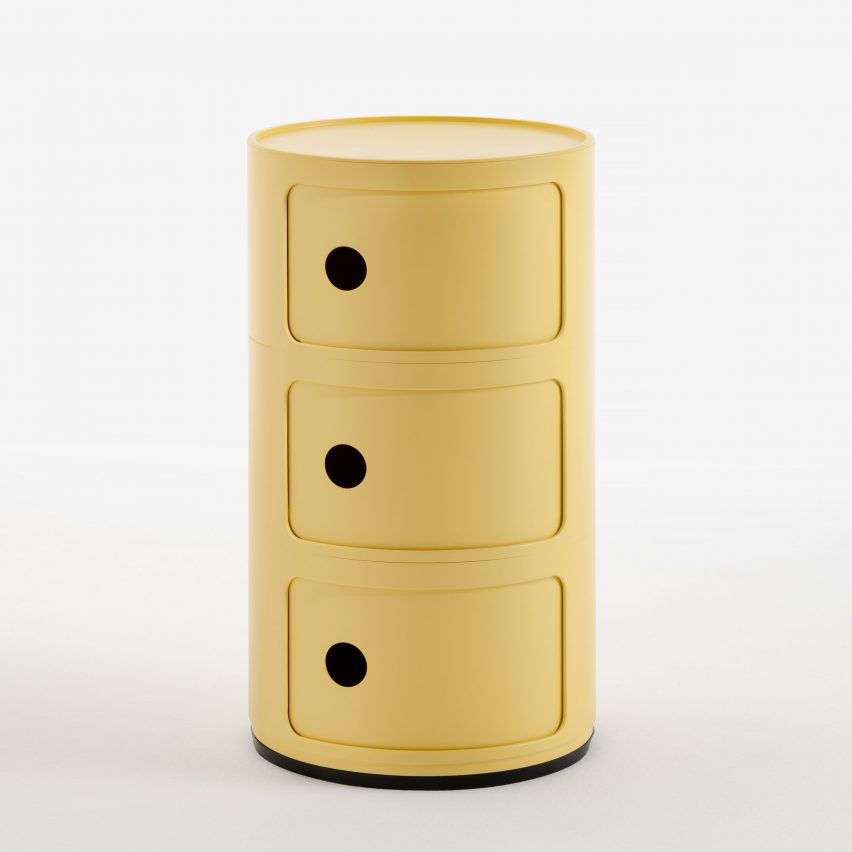
However Kartell's decision to develop a more eco-friendly alternative to its plastic products comes at a time when the sustainability of bioplastics are under scrutiny, as there have been claims that they could potentially be worse for the environment than conventional plastics.
According to recycling expert Arthur Huang, this is because the bio-material can make soil and water more acidic when it breaks down.
Researchers have also discovered that bags made of so-called biodegradable plastic remain intact three years after being buried underground or dropped in the sea.